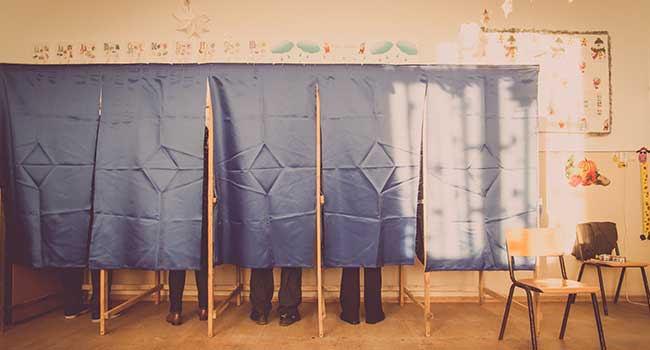
Citing Security, Schools Push Back on Polling Site Designation
Schools push back on polling site designations due to security concerns
- By Jessica Davis
- September 17, 2018
Midterm elections are approaching, and the designation of many public school campuses as polling sites has raised security concerns across the country. In addition to taking steps to ensure student safety, some districts are pushing back on laws that forbid them from appealing designation as polling sites.
Last month, the Atlanta School Board in Georgia changed the public school schedule to designate Nov. 6, Election Day, as a professional development day for employees instead of a regular school day. Students will stay home that day to alleviate some traffic and security concerns at campuses that serve as polling locations, and employees will spend some of their workday on safety and security training.
“With all these shootings it’s scary to have people be able to walk into the schools,” said Linda Bryant, president of the Fulton County school board in Georgia. “Years before, people were not walking into school killing children. School was a safe place, and schools should still remain a safe place.”
Because of concerns for student safety, the Fulton County school board is planning to push to change a law requiring schools to serve as polling stations when asked by county government officials. Attorney Glenn Brock recommended to members at a recent meeting that they call on legislators to rewrite the law with language that allows school districts to opt out of hosting polls at campuses.
In New York, schools designated as polling sites are struggling with a new state corrections regulation after Gov. Andrew M. Cuomo signed an executive order in April to allow up to about 35,000 parolees, including sex offenders, the ability to vote.
The New York Department of Corrections issued a “special condition” earlier this month under which a paroled sex offender may enter a school to vote but only if they receive written permission from their parole office and the school district superintendent before Election Day. Paroled sex offenders must inform their parole officer of their travel plans to and from a polling site at a campus before Election Day, they cannot enter schools to vote until 7 p.m., and they cannot “remain or loiter” on campus after voting, according to the agency.
Officials and parents have raised safety and security concerns in light of these new laws. For example, school officials in Levittown, New York, canceled evening activities at 10 of the district’s 11 school buildings on Thursday due to the Primary Election.
School districts in New York also cannot appeal polling place designation, but an action plan to improve security, created last month by the Suffolk County School Superintendents Association, asked for legal changes that would allow an appeal process.
“When school building[s] are used as polling locations, they are open to the public and schools are unable to track or control the access to their facilities,” read the association's Blueprint for Action.
Even some election officials have found that schools do not serve as ideal polling sites. The level of security at school campuses makes it difficult to use them for voting, according to Janine Eveler, director of the Cobb County elections board in Georgia.
“As the world has changed, schools have become more enclosed. Their job is to keep the bad out. Our job is to let everyone in to vote, so we are at counter purposes,” Eveler said.
About the Author
Jessica Davis is the Associate Content Editor for 1105 Media.